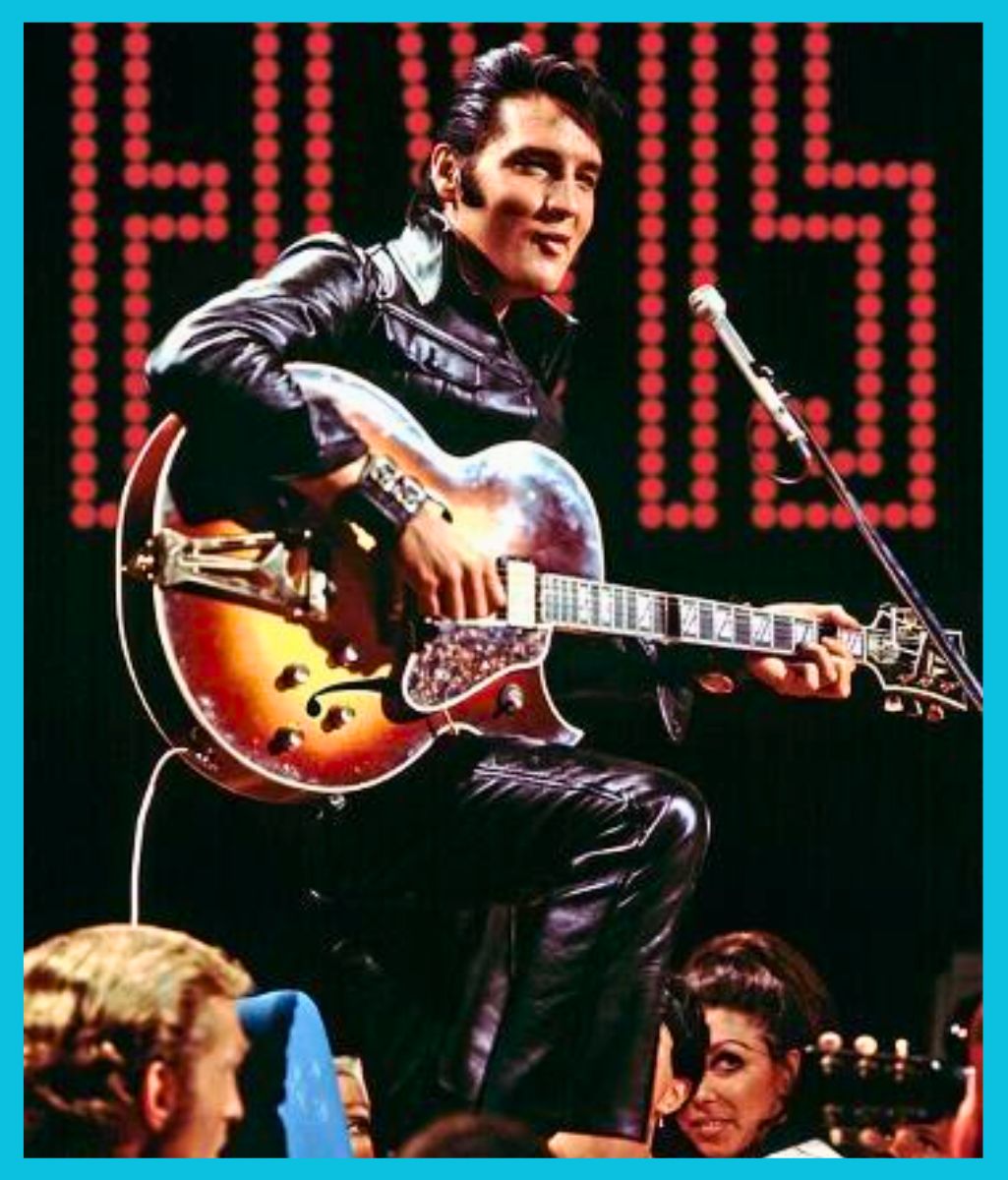
EMOTIONAL RECALL: BACK IN 1974 — In His Final Years, Elvis Presley Chose Emotion Over Movement
By the mid-1970s, the world’s brightest star had begun to fade in body — but not in spirit. The glittering jumpsuits, the screaming crowds, and the relentless tours all remained, yet something in Elvis Presley had shifted. What had once been a spectacle of rhythm and movement was now something far more profound: a communion between a man, his music, and his maker.
Back in 1974, fans who attended his shows began to notice the change. The King of Rock ’n’ Roll, once famous for his electrifying hips and boundless energy, no longer danced across the stage with the same abandon. The movements were slower, the gestures more deliberate — but the emotion was deeper than ever. For those who truly listened, it was clear that Elvis had traded choreography for confession.
In his final years, Elvis’s voice became the vessel for everything he could no longer express through motion. The richness of that baritone — once a symbol of rebellion — turned into something raw, spiritual, and hauntingly intimate. He wasn’t just singing for an audience anymore; he was singing for his own soul.
When he performed “Hurt” in April 1975, it wasn’t merely a song — it was a cry from the heart. Each line of that powerful ballad carried the ache of a man who had known both the highest peaks of fame and the quiet valleys of loneliness. Those who were there recall how the room fell utterly silent, as if every person present instinctively understood they were witnessing something sacred.
Then, later that same year, in December 1975, came “How Great Thou Art.” Standing beneath the lights, dressed in his white jumpsuit with a simple cross around his neck, Elvis lifted his eyes toward the heavens as he sang. The performance became one of the defining moments of his later career — a man once called “The King” humbly bowing before something greater. The gospel roots that had shaped him from childhood in Tupelo, Mississippi, came full circle that night.
Behind the curtain, those close to him knew the toll his body was taking. The endless travel, the exhaustion, the medication — all were beginning to show. But when the spotlight hit him, and the first note left his throat, none of that mattered. Elvis Presley’s voice — pure, commanding, and filled with grace — still had the power to lift thousands to their feet and move millions more who would later watch him on screen.
For his fans, those final performances weren’t about the decline of an idol, but the revelation of a man. The physical dynamism may have faded, but what emerged was something far more enduring: authenticity. When he sang, it was no longer performance — it was prayer. His eyes closed, his hands outstretched, and every word seemed to bridge the distance between earth and heaven.
Even now, decades after his passing in August 1977, recordings from those final years continue to resonate. The live versions of “Hurt,” “My Way,” and “How Great Thou Art” remain proof that while Elvis’s body weakened, his spirit only grew stronger.
In the end, the King didn’t need to move to move others. He had discovered something greater than rhythm — the quiet, trembling power of truth.
And when Elvis Presley sang in those final years, the world didn’t just listen. It believed.
